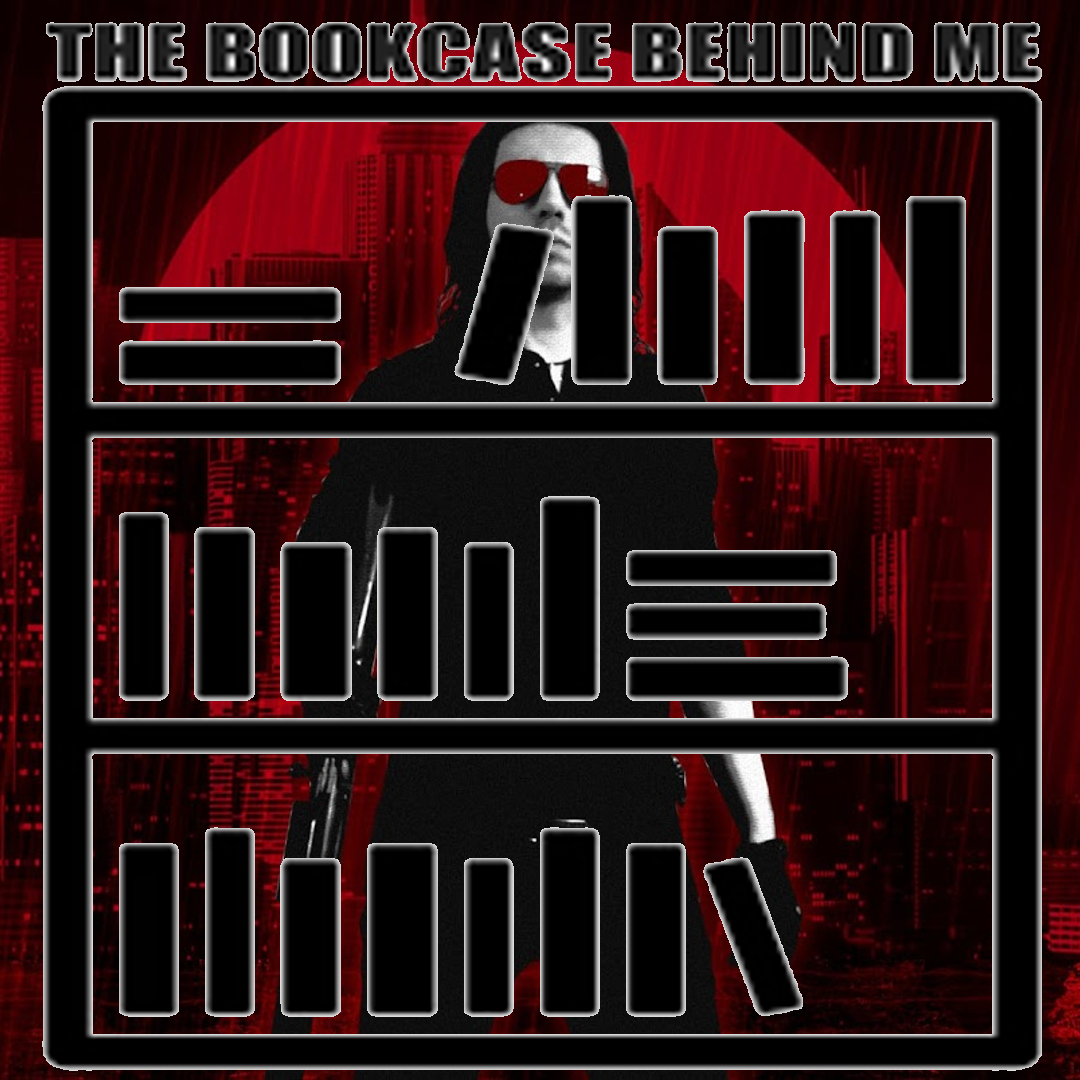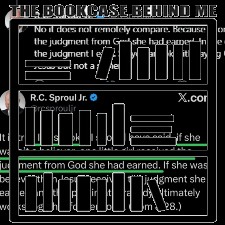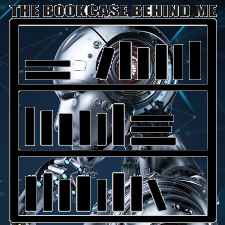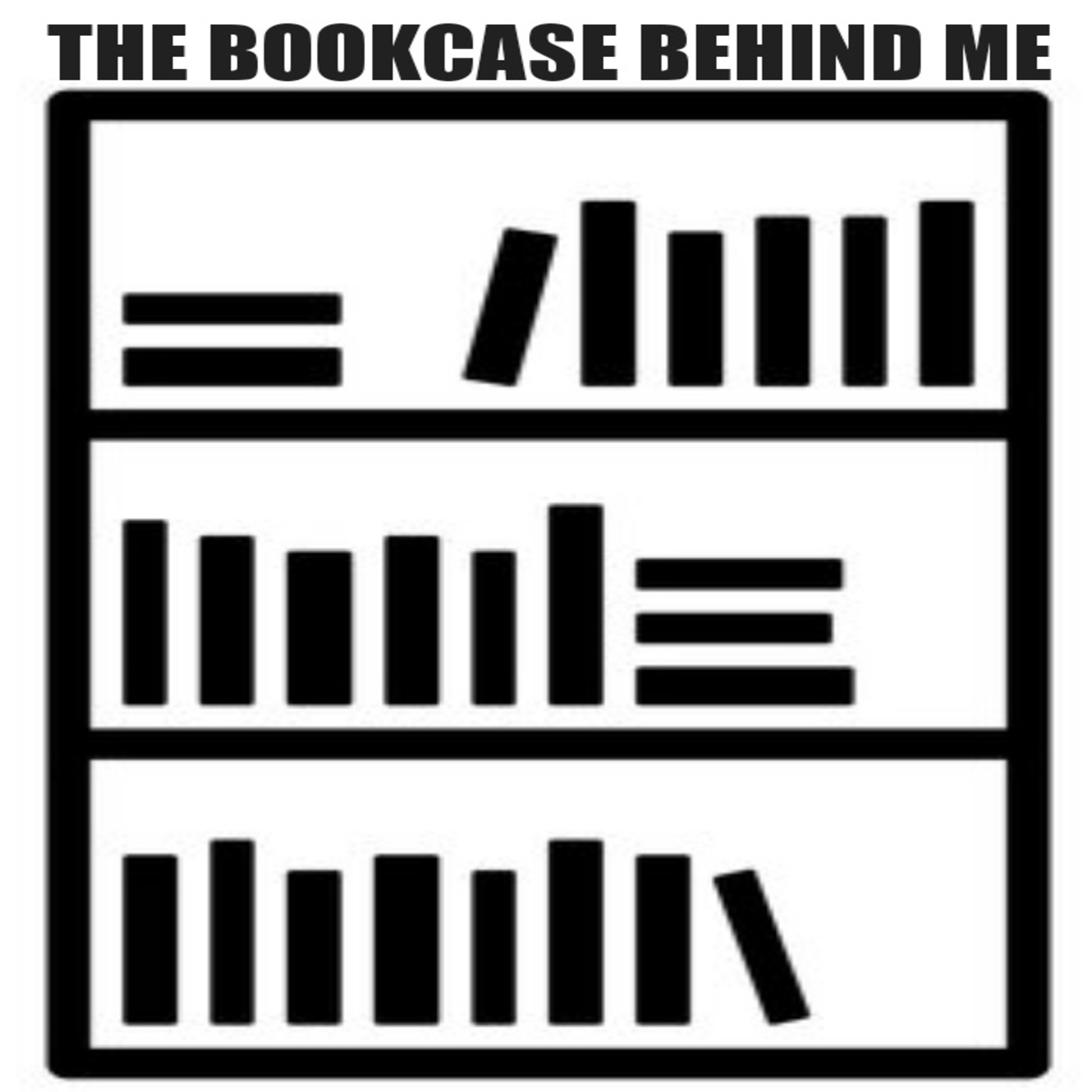In the latest episode of The Bookcase Behind Me podcast, Pastor Brandon Warr explores the viral debate between biblical scholar Wesley Huff and New Age proponent Billy Carson regarding ancient biblical manuscripts and the historicity of Jesus’s crucifixion.
Debate Overview
What happens when a trained biblical textual critic meets a New Age conspiracy theorist? That’s exactly what unfolded in the now-viral debate between Wesley Huff and Billy Carson that was recorded in October 2024 but only released this December.
The exchange has garnered millions of views across social media platforms, with particular attention on Carson’s claims about the “Sinai Bible” and Jesus’s crucifixion. This episode breaks down the key moments and provides important context for Christians encountering similar challenges to their faith.
Who Are The Debaters?
Wesley Huff
Wesley Huff is a Protestant scholar and apologist (with some Reformed leanings). Though I’m Lutheran and we have theological differences, I find his scholarship helpful, particularly in textual criticism and debunking conspiracy theories about the New Testament. He has excellent resources on topics like proving Christmas isn’t pagan and addressing the historical dating of Christ’s birth.
Billy Carson
Billy Carson is an internet guru who promotes “Christ consciousness,” New Age ideas, conspiracy theories, and “ancient aliens” content. He presents himself as knowledgeable about ancient texts, though as we’ll see, this is questionable.
The “Sinai Bible” Controversy
The most shared clip from the debate begins with Carson making a startling claim: according to what he calls the “Sinai Bible,” Jesus was never crucified. He further asserts:
- This “Sinai Bible” predates the King James Version
- It contains 12,000-14,000 differences from modern Bibles
- Jesus may have been married (referencing a supposed “Book of Jesus’s Wife”)
- Jesus wasn’t the Son of God but taught that “we’re all gods”
These claims would be shocking if true—which is exactly why understanding the scholarly response is so important for believers.
How Wesley Huff Dismantled These Claims
Huff’s methodical response offers a masterclass in defending biblical reliability:
- Ask clarifying questions first: Instead of immediately attacking, Huff asked, “When you say the Sinai Bible, what are you referring to specifically?” This revealed Carson was referring to Codex Sinaiticus.
- Establish credentials: Huff explained his expertise working with ancient manuscripts, including having a facsimile of Codex Sinaiticus.
- Address claims with facts: He clarified that Codex Sinaiticus (325-350 AD) does include the crucifixion narratives and reads almost identically to modern Greek texts used for translations.
- Follow the shifting argument: When Carson changed his claim to reference the “Gospel of Barnabas” instead, Huff was prepared with comprehensive knowledge about this document too.
- Demonstrate historical methodology: Huff explained why scholars reject the Gospel of Barnabas as a forgery, citing:
- Only two copies exist (in Italian and Spanish)
- Contains geographical errors about Palestine
- Shows no knowledge of 1st century Jewish understanding
- Paraphrases Dante’s Inferno (written in 1314)
- References medieval concepts unknown in ancient times
- No evidence of it before the 14th century
The Viral Aftermath
The debate’s impact has extended far beyond the original recording:
- Billy Carson has reportedly attempted legal action against both the podcast host and Wesley Huff
- Carson posted angry follow-up videos about the debate
- Even Carson’s audience members have acknowledged he lost the debate
- Wesley Huff is rumored to be appearing on Joe Rogan’s podcast as a result
- Christian apologetics resources have seen increased interest following the viral clips
Why This Matters For Christians
This debate highlights several important lessons for believers:
- Be prepared: Many Christians feel intimidated by shocking claims about the Bible, but as this debate shows, many conspiracy theories collapse when confronted with actual scholarship.
- Value methodology: Understanding how scholars evaluate historical documents helps distinguish between credible sources and forgeries.
- Utilize available resources: Your pastor is likely familiar with textual criticism from seminary training. Additionally, numerous online resources can help you research challenging claims.
- Maintain respectful dialogue: Notice how Huff remained calm and respectful throughout, focusing on facts rather than attacking his opponent.
Conclusion: Defending the Faith with Confidence
This debate highlights the importance of being prepared to answer challenges to the faith. As Christians, we shouldn’t be discouraged when encountering shocking claims. Resources exist to help defend the faith:
- Your pastor is a valuable resource – seminary-trained Lutheran pastors should be familiar with textual criticism and common attacks against Christianity
- Online resources can help you discern truth when used wisely
The debate shows that many conspiratorial claims collapse when met with actual scholarship. Wesley Huff didn’t need extensive preparation to address these claims using knowledge from his seminary training.





